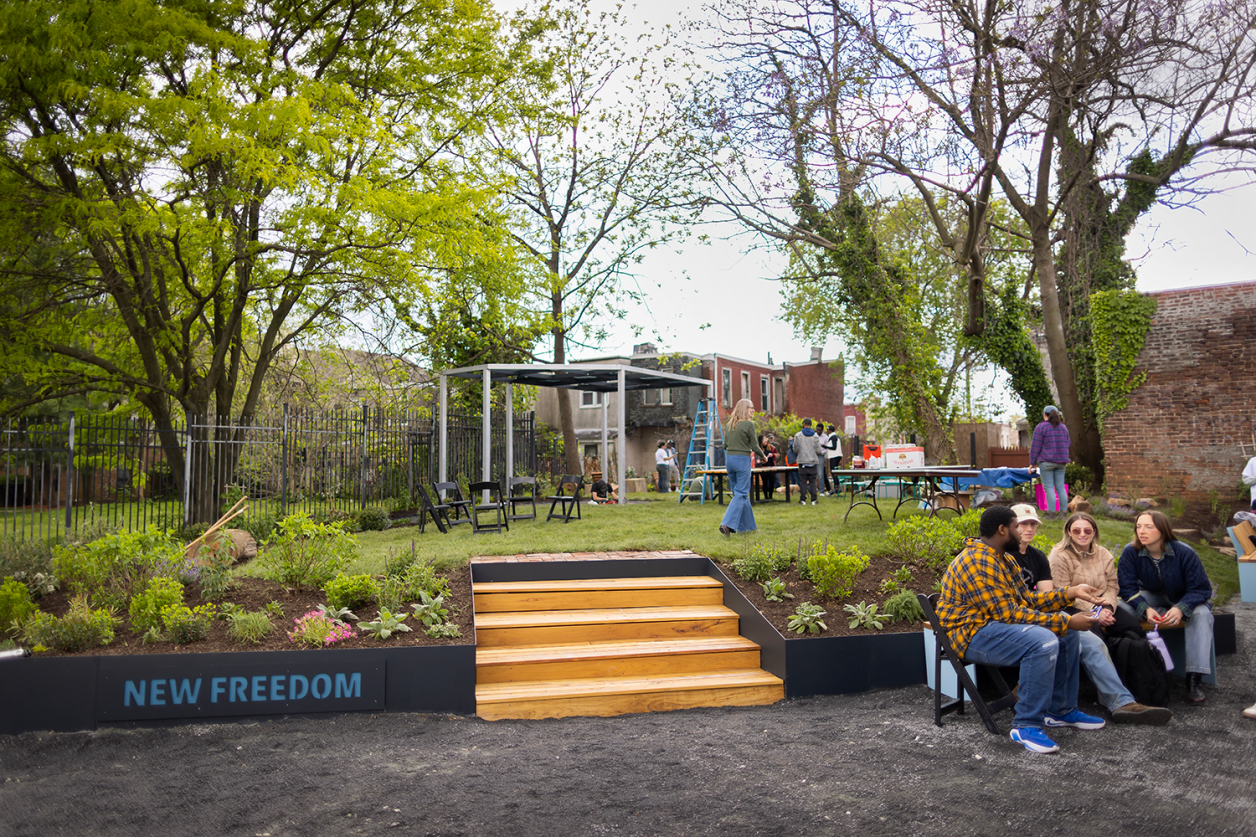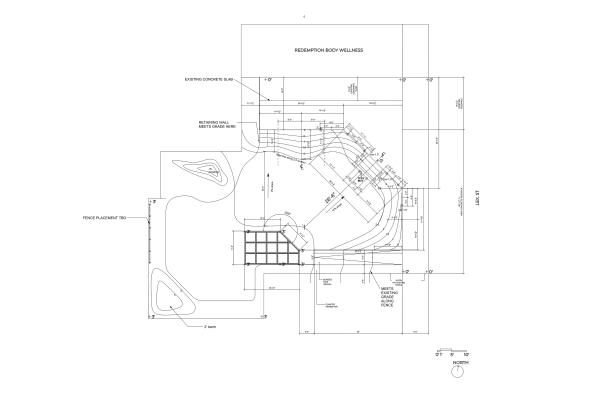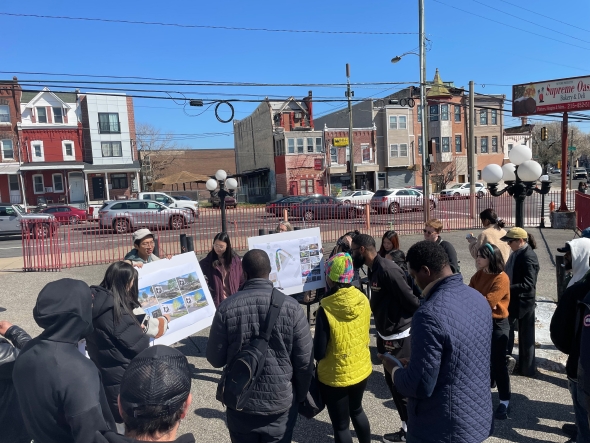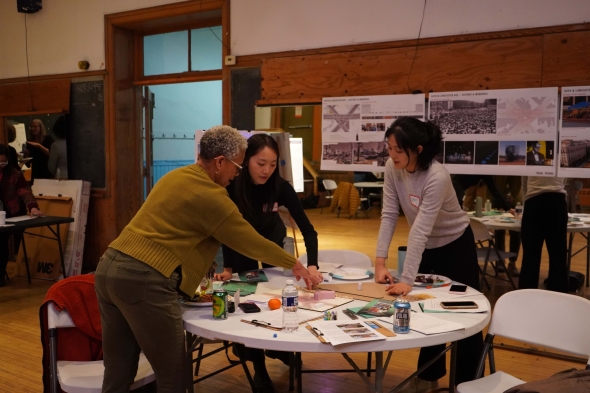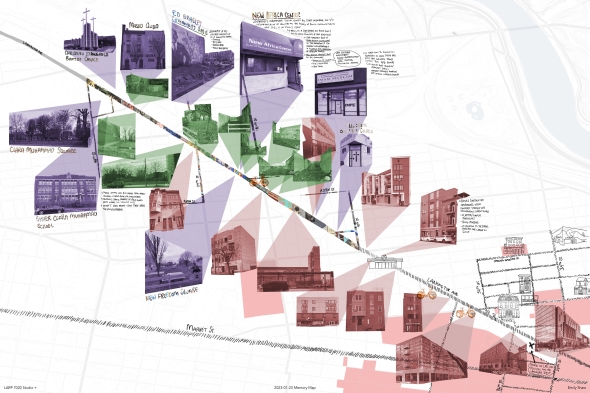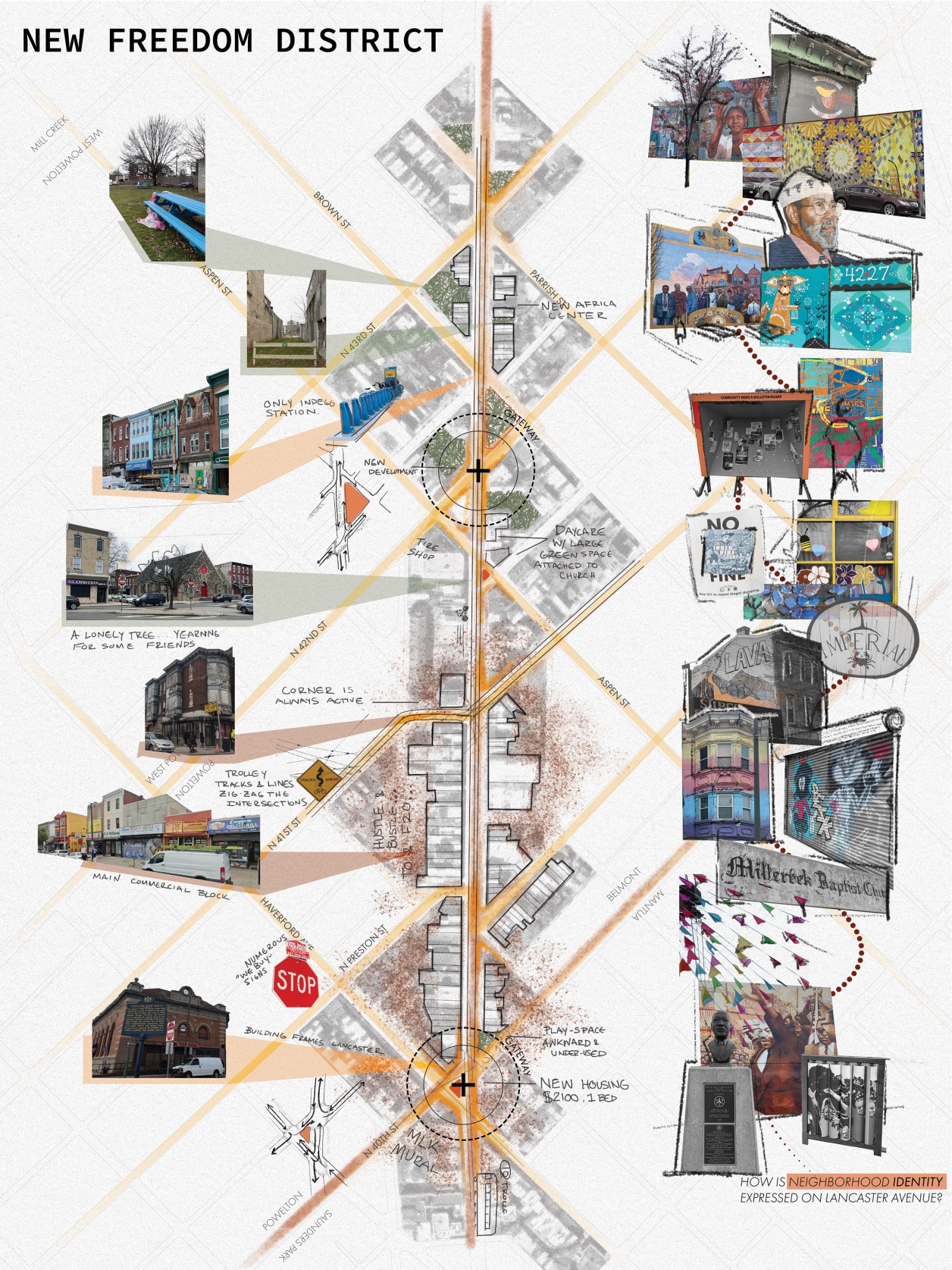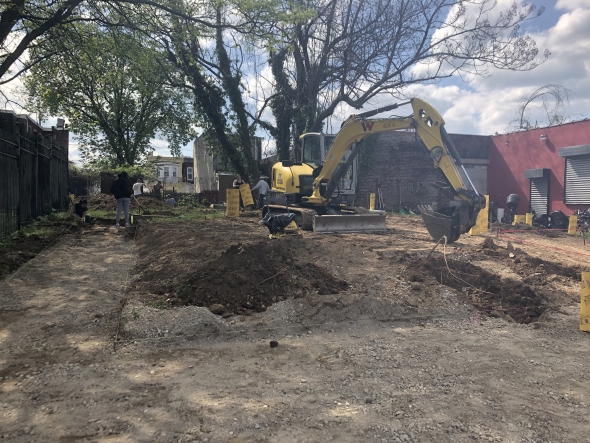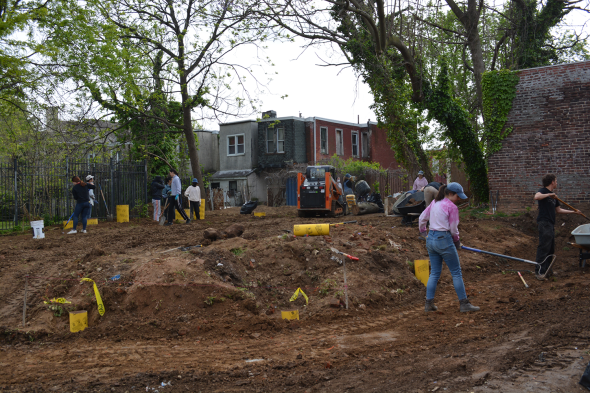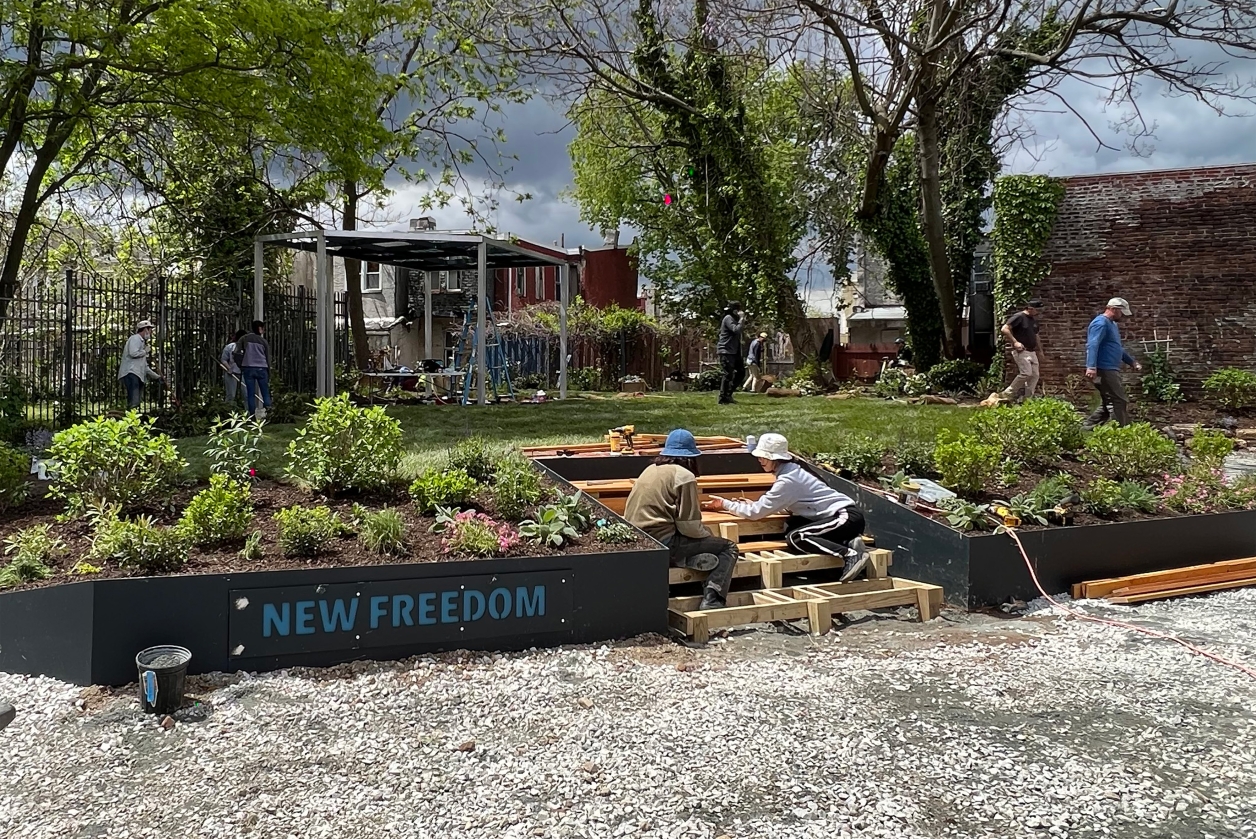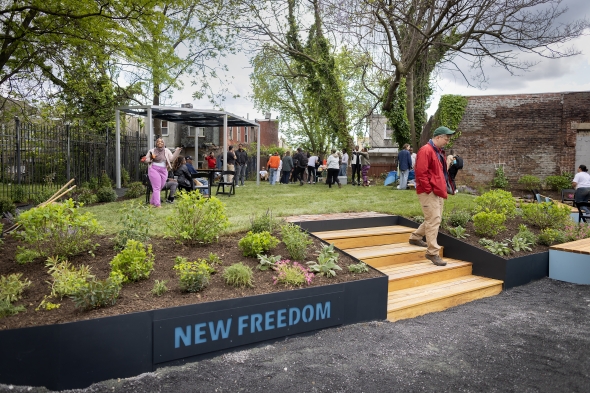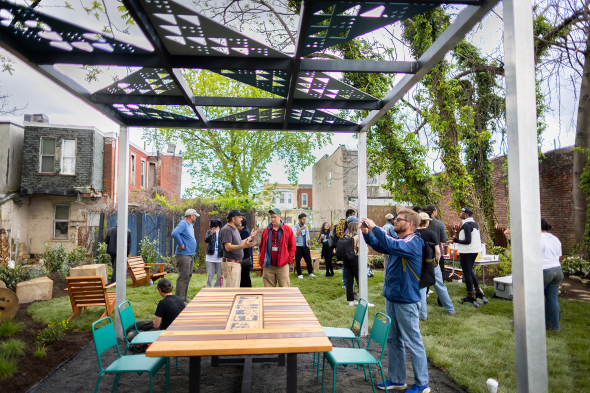Studio+: New Freedom District
How does one “read” the landscape of a neighborhood – how do we identify and feel the uniqueness of its history, its community, its character? Our cities embody a multiplicity, many layers of identity and multi-generational stories, built-up over time. Yet designing our urban fabric today can perhaps often be described as a practice more rooted in “universal” design principles than local lore. Functional, neutral ground. Content-free design. But how can contemporary public space design also evoke meaning, and reveal and enhance the authentic character of a place?
Coordinated by PennPraxis, the applied research, engagement, and practice arm at Weitzman, this is a design/build studio about engaging with a local community, gathering stories, and making spaces. Students collaborated with West Philadelphia residents, including students at West Philadelphia High School, the New Africa Center, and Hope PHL to transform a vacant lot into a public garden, the Lex Street Garden, as part of the New Freedom District.
The studio explores the process of design through narrative, material studies and various iterative building methodologies to generate design concepts. By midterm, students will be asked to select a site within their proposed district plan to detail a specific public space design and then to physically construct one key, symbolic aspect of it to be presented on site. As part of the final review, the studio will tour the district to sites where various “pop-up” installations have been created. Collaborating courses and studios in architecture and city planning will also contribute installations to support a district-wide public conversation.
Studio+ is an ongoing initiative of the Weitzman School focused on community-engaged design, planning, art, and preservation, conceived as a vehicle for interdisciplinary action on the part of Penn students and faculty to increase equity and reduce systemic racism embedded in uneven distributions of public resources and power, under-achieving buildings and spaces, and erasures in the city. This annual studio, supported by the Dean and the school’s five departments, and coordinated by PennPraxis, cultivates long-term dialogue between communities of color and the university to shape new agendas and partnerships that deliver concrete value to the community.


